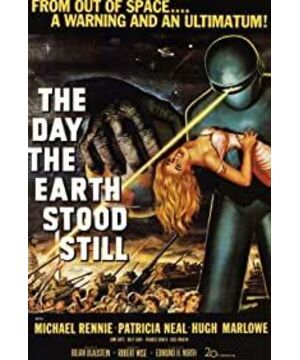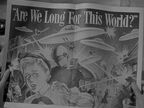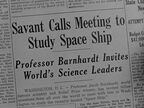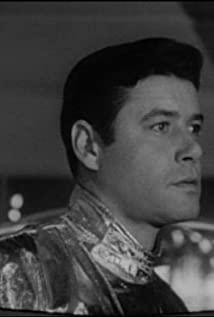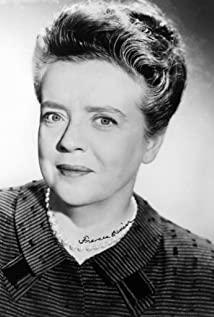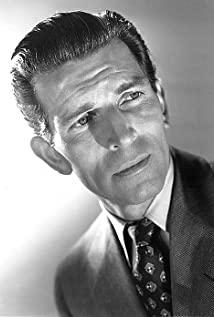In 1951, Robert Wise directed two pictures for 20th Century Fox, fully demonstrating his proteanism in handling different materials. THE HOUSE ON TELEGRAPH HILL is a noir-tinted gothic mystery between a married couple, where the wife suspects her husband is trying to her ; and THE DAY THE EART STOOD STILL, for all its fantastical construct, is a thin-veiled remonstrance against the Atomic Age's nuclear aggression, its pacific message is well-intentioned but also too pedagogic by half.
In THE HOUSE…, can you blame a Polish concentration camp survivor for grabbing a chance for a better life in USA, by taking the identity of her deceased friend? Her moral struggle is there, but it turns out that something more sinister transpires in the land of milk and honey. After marrying an American Alan Spender (Basehart), under the false identity, Victoria Kowalska (Cortese) becomes the materfamilias of the titular dwelling in San Francisco, meets her dead friend's school-aged son Christopher (Gebert), and takes his guardianship from Alan, who is a distant relative of the family. But soon she is shrouded by a victim's paranoia, is her and Christopher's lives are seriously in danger, and why the latter's governess Margaret (Baker) regards her as an intruder ?
Cortese comports herself with delicacy and variations in tones to inhabit Victoria's mounting distrust and suspicion of her bedfellow, elegant, maternal and without wiles, you root for her triumph in spite of her questionable morality, she and the straight arrow Major Marc Bennett (Lundigan) is the wholesome pair denotes the post-WWII normalcy. Basehart, for all his handsomeness, is brilliantly effective in modulating Alan's subtle aggression, it is chilling to peer through his gentility, and suss his insidious motive, and Baker manages to bring about a badly conceived character with adequate ambiguity and dignity, whose frigid front is a trite repetition of those in George Cukor's GASLIGHT (1944) and Hitchcock's REBECCA (1940), her Margaret is the wildcard.
Money-grubbing seediness is blasted in THE HOUSE… and Wise's direction tolerantly sustains its gnawing atmospherics if the story itself has no brio to spare (when the orange juice twist is divulged, it is rather comforting than surprising), but in THE DAY…, on the strength of the picture's sensational ballyhoo, he finds confidence in practicing a documentary style to great effect, even the extraterrestrial's humanoid crudeness never takes you too faraway from its message-heavy obviousness.
Most strikingly, apart from the special effects of a flying saucer landed in Washington and its then gee-whiz paraphernalia, what can really floor you is Herrmann's eclectic, cosmic score that explores an assortment of novel instruments to create an otherworldly aural ambience, which antedates Fred M. Wilcox's FORBIDDEN PLANET (1956), whose electrical score imbues a similar out-of-this-world potency.
If the actualization of the story's Sci-Fi elements seems ineluctably antediluvian (the giant robot Gort is an elephantine killing machine, in the adjective's both terms of enormity and mobility. There was a remake starring Keanu Reeves in 2008, by Scoot Derricks, but the reception was dismal), what makes THE DAY… still an essential viewing is using the alien Klaatu (an angular, gentleman-like Rennie) as a metaphorical intermediary of the Cold War, and the self-critical admonishment of our species' own failings ( or mankind's inertia, using the film's phrase): the trigger-happy proclivity when facing the unknown, the wanted-dead-or-alive tactic when facing an almighty force (the electricity-neutralization is a good ploy to effortlessly prove Klaatu's point with economy ). Its topicality doesn't diminish through time and at the very least,it is beneficent to hear the fair warning from time to time.
Wise's efficiency in execution cannot save the story's didactic tenor, but whenever Patricia Neal is on the screen, her demure, warm appearance produces a soothing effect on you, and the amicable relation between her Helen Benson and Klaatu starts to become the prime mover of one's last faith in humanity, it is people exemplified by Helen and the conscientious scientist Professor Barnhardt (Jaffe, sporting Einstein-like frizzed pelt) that represents our redemption and touches Klaatu, whose advent, death and resurrection is none-too-subtle to imply a religious influence. But are we living in a millenarian time? Unfortunately, our untoward reality begs to differ.
referential entries: Wise's WEST SIDE STORY (1961, 7.7/10); George Cukor's GASLIGHT (1944, 7.2/10); Fred M. Wilcox's FORBIDDEN PLANET (1956, 7.2/10).
Title: The House on Telegraph Hill
Year: 1951
Country: USA
Language: English, German, Cantonese
Genre: Crime, Drama, Film-Noir
Director: Robert Wise
Screenwriters: Elick Moll, Frank Partos
based on the novel by Dana Lyon
Music: Sol Kaplan
Cinematography: Lucien Ballard
Editing: Nick DeMaggio
Cast:
Valentina Cortese
Richard Basehart
William Lundigan
Fay Baker
Gordon Gebert
Herb Butterfield
Natasha Lytyss
Rating: 7.0/10
Title: The Day the Earth Stood Still
Year: 1951
Country: USA
Language: English, French, Hindi, Russian
Genre: Drama, Sci-Fi
Director: Robert Wise
Screenwriter: Edmund H. North
based on the story by Harry Bates
Music: Bernard Herrmann
Cinematography: Leo Tover
Editing: William Reynolds
Cast:
Michael Rennie
Patricia Neal
Hugh Marlowe
Sam Jaffe
Billy Gray
Frances Bavier
Lock Martin
Frank Conroy
Edith Evanson
Rating: 7.4/10
View more about The Day the Earth Stood Still reviews


